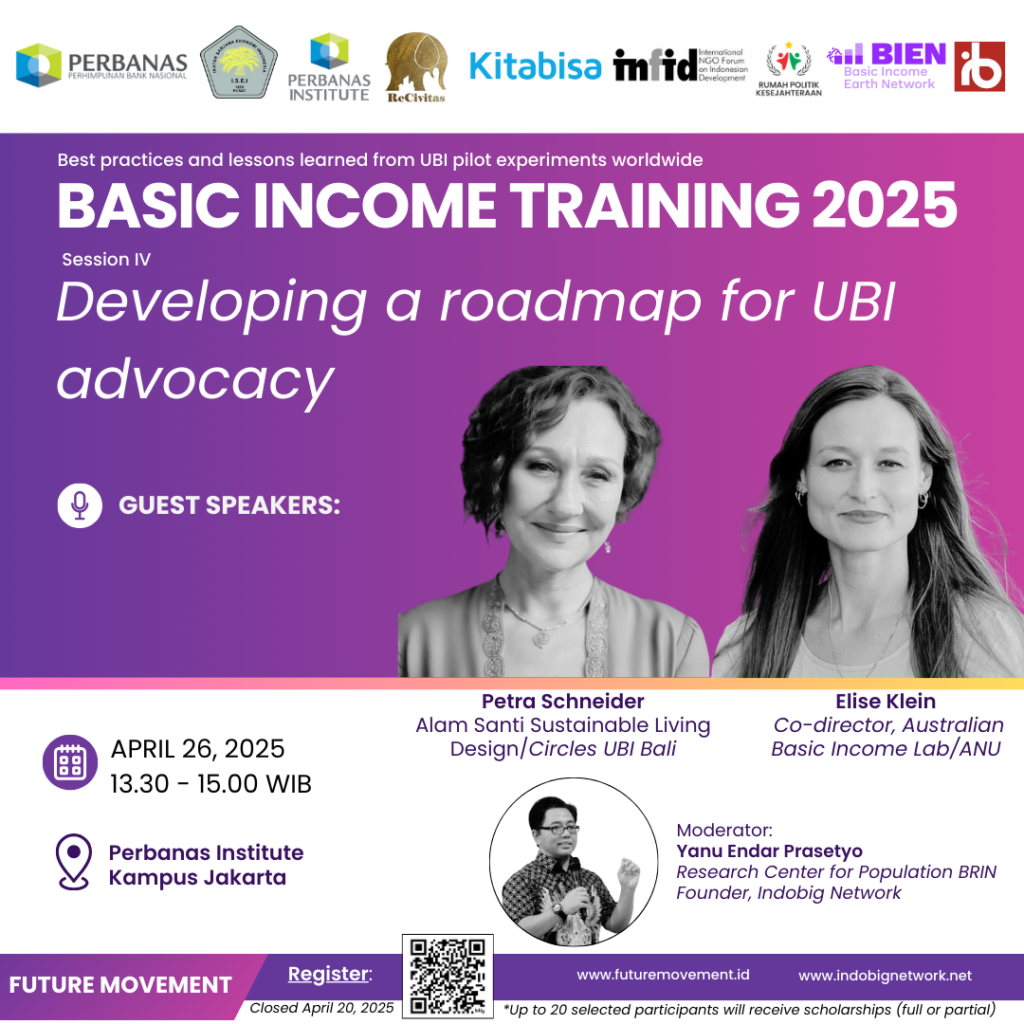
Background
In recent years, the world has faced significant challenges that underscore the need for more inclusive and adaptive social policies. The COVID-19 pandemic has highlighted the fragility of the global economic system, with millions losing their jobs and access to stable incomes. Additionally, uncertainties driven by climate change, digital transformation, and job automation have exacerbated social and economic inequalities in many countries. These circumstances have pushed both developed and developing nations to seek innovative solutions to protect their citizens from the adverse effects of structural economic changes. Universal Basic Income (UBI) is increasingly being considered as a viable solution to provide universal social security and support people in navigating these challenges.
In Indonesia, similar challenges have become increasingly apparent. Rising income inequality, the high proportion of informal workers, and the limited coverage of social assistance programs are pressing issues that demand immediate attention. Moreover, the economic pressures faced by vulnerable groups, such as young workers, women, and the rural poor, underscore the need for policies that prioritize social justice. With its large and diverse population, Indonesia requires policy approaches that not only alleviate poverty but also create opportunities for people to participate in sustainable economic development. UBI offers a promising pathway to address these challenges while fostering a more equitable and inclusive social order.
By implementing UBI, Indonesia has the opportunity to leverage global momentum and demonstrate leadership in Southeast Asia. With a well-planned and evidence-based approach, UBI can serve as a catalyst for reducing inequality, strengthening economic stability, and building a more resilient society. Therefore, initiatives such as the Basic Income Training 2025 are increasingly relevant for enhancing understanding, building collaborations, and advancing UBI implementation efforts in Indonesia.
Objectives
- Provide participants with a comprehensive understanding of UBI theories, principles, and its potential impact.
- Highlight best practices and lessons learned from UBI pilot experiments worldwide.
- Facilitate the design of innovative UBI pilot projects tailored to Indonesia’s context.
- Strengthen connections between local grassroots movements and international organizations like BIEN Asia Pacific.
Expected Outcomes
- Enhanced understanding of UBI concepts and practical applications.
- Development of actionable UBI pilot project frameworks.
- Stronger collaboration between Indonesian and international UBI advocates.
Dates
The training will be held on April 25 – 27, 2025.
Agenda
- Introduction to UBI Theories: Key principles and global trends in UBI advocacy.
- UBI Pilot Experiments: Insights from past and ongoing UBI trials.
- Designing New Pilots: Collaborative sessions to draft innovative pilot projects for Indonesia.
- Networking with BIEN Asia Pacific: Opportunities for collaboration and resource sharing.
Speakers and Partners
The training will feature a diverse range of experts and organizations, including:
Keynotes:
- A. Muhaimin Iskandar (Coordinating Ministry for Social Empowerment, Republic of Indonesia)
- Guy Standing & Sarath Davala (Basic Income Earth Network/BIEN)
- Bruna Augusto Pereire & Marcus Brancaglione (ReCivitas Brazil)
- Aviliani (Senior Economist INDEF)
Guest Speakers:
- John Michael (BIEN Asia Pacific)
- Jonatan Lassa (Charles Darwin University)
- Elise Klein (Australian Basic Income Lab/ANU)
- Sugeng Bahagijo (RPK Indonesia)
- Yanu Endar Prasetyo (Indobig Network)
- Anwar Sastro Ma’ruf (Koalisi Jamesta)
- M. Sena Luphdika dkk (Jamesta Istimewa)
- Petra Schneider (Circles Indonesia)
- Amrul Hakim (Bojonegoro Klunting)
- Aloysius Gunadi Brata (Atma Jaya Yogyakarta)
Participants
The training is open to individuals and organizations interested in UBI, including policymakers, researchers, activists, and grassroots leaders.
Venue
Kampus Perbanas Institute, Jakarta. Gedung 5, Lantai 6


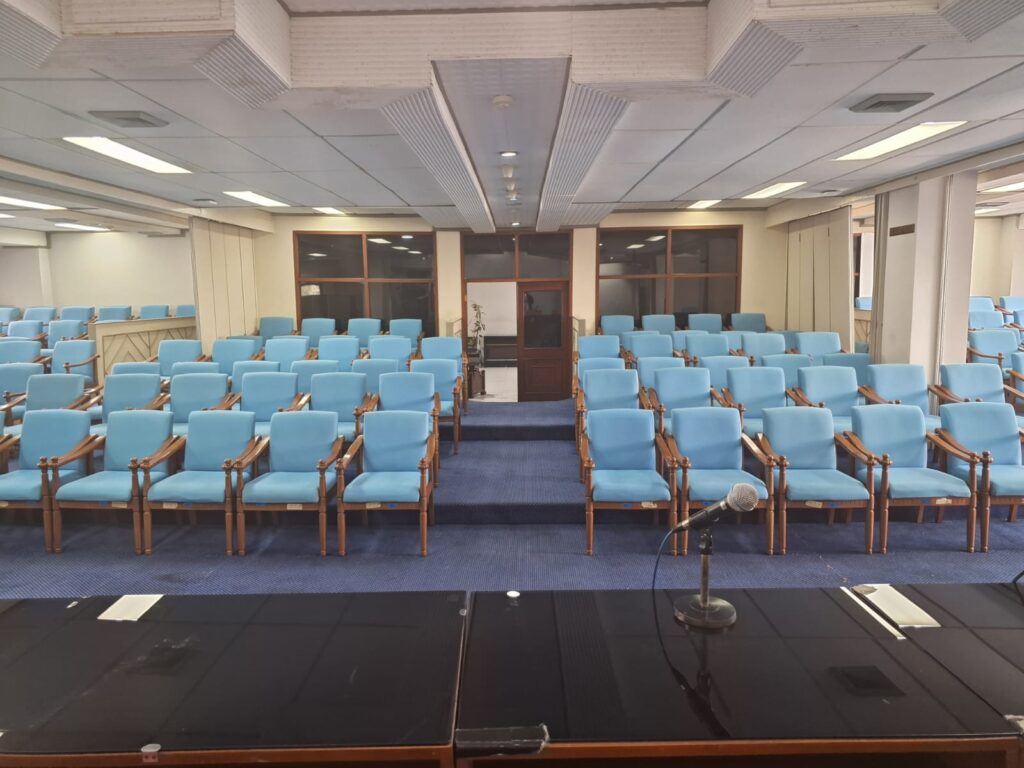
Scholarship Opportunity
Up to 20 selected participants will receive scholarships (full or partial) to attend this training. Scholarships are awarded based on merit and financial need, ensuring accessibility for all.
Registration
Participants can register online via the following link: https://bit.ly/BIT_2025

Plenary Session
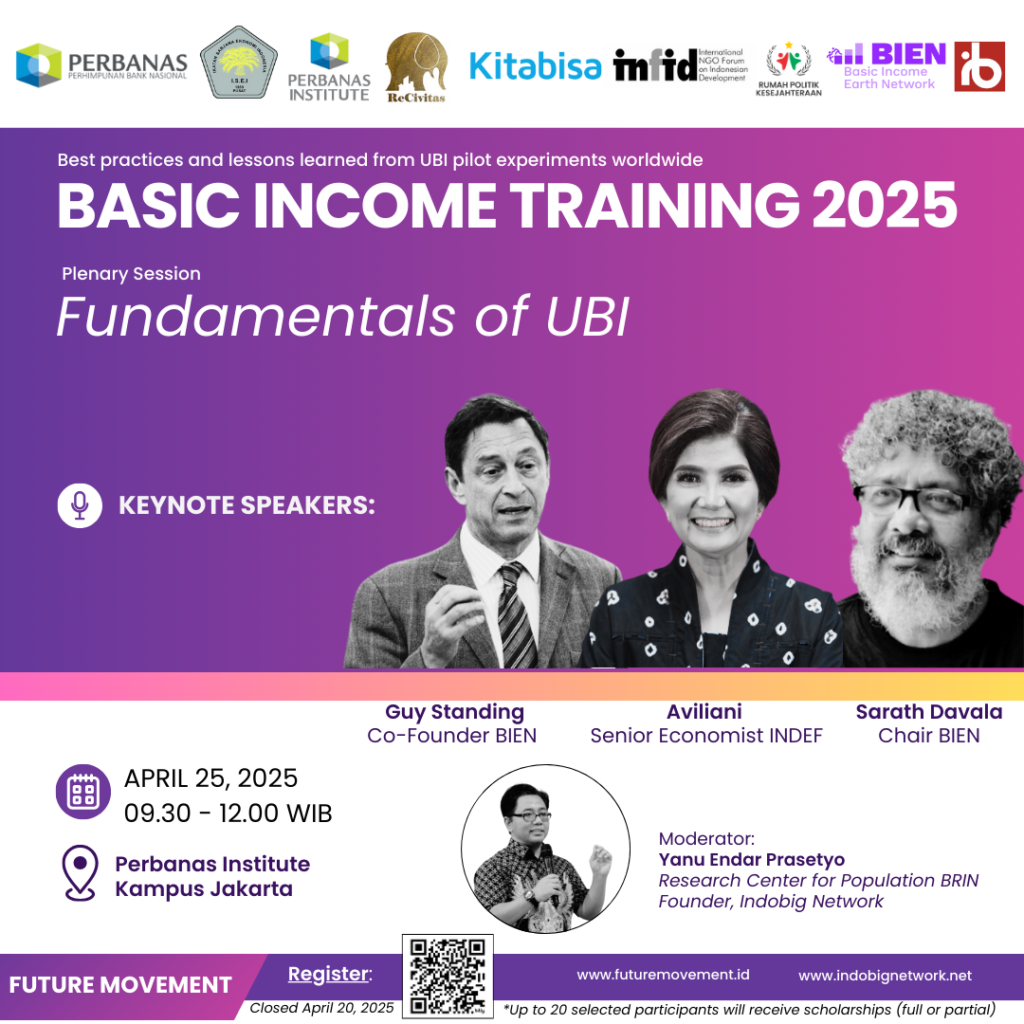
Session I
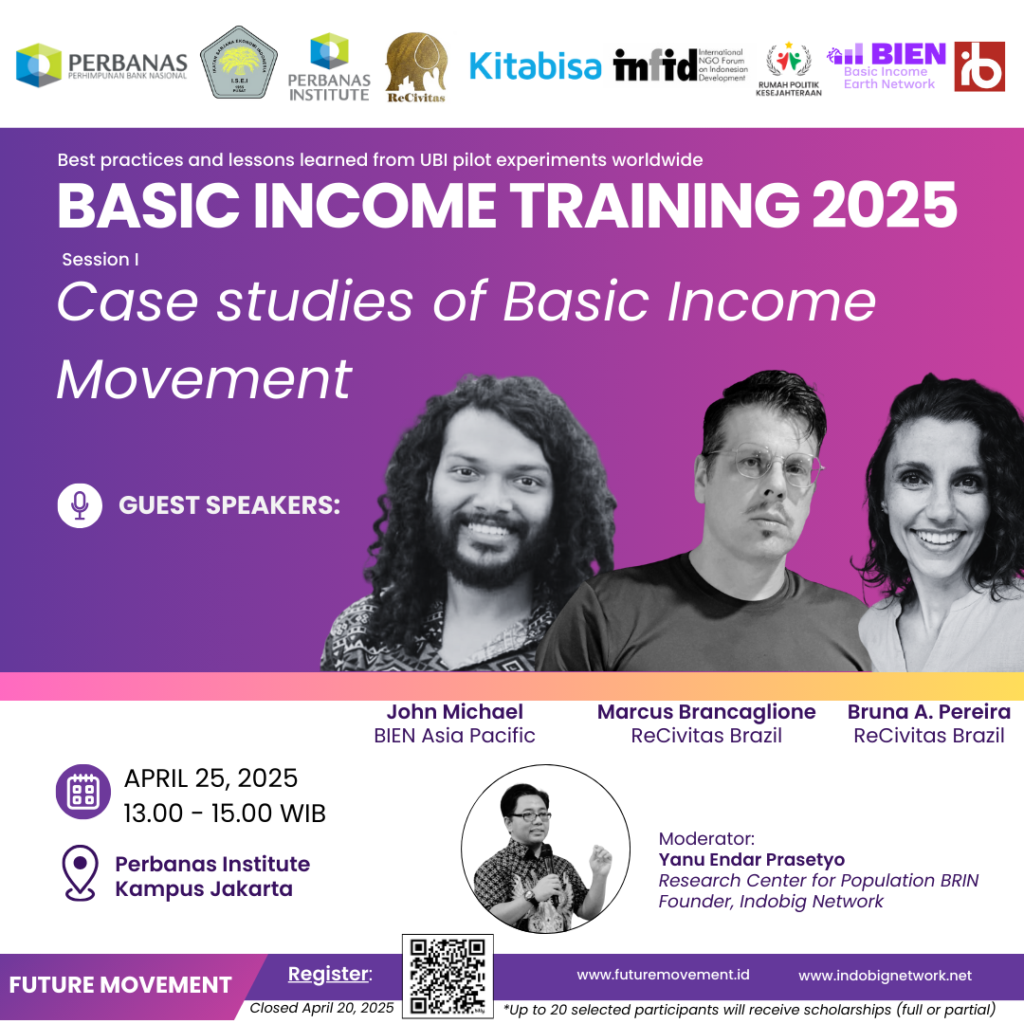
Session II

Session III
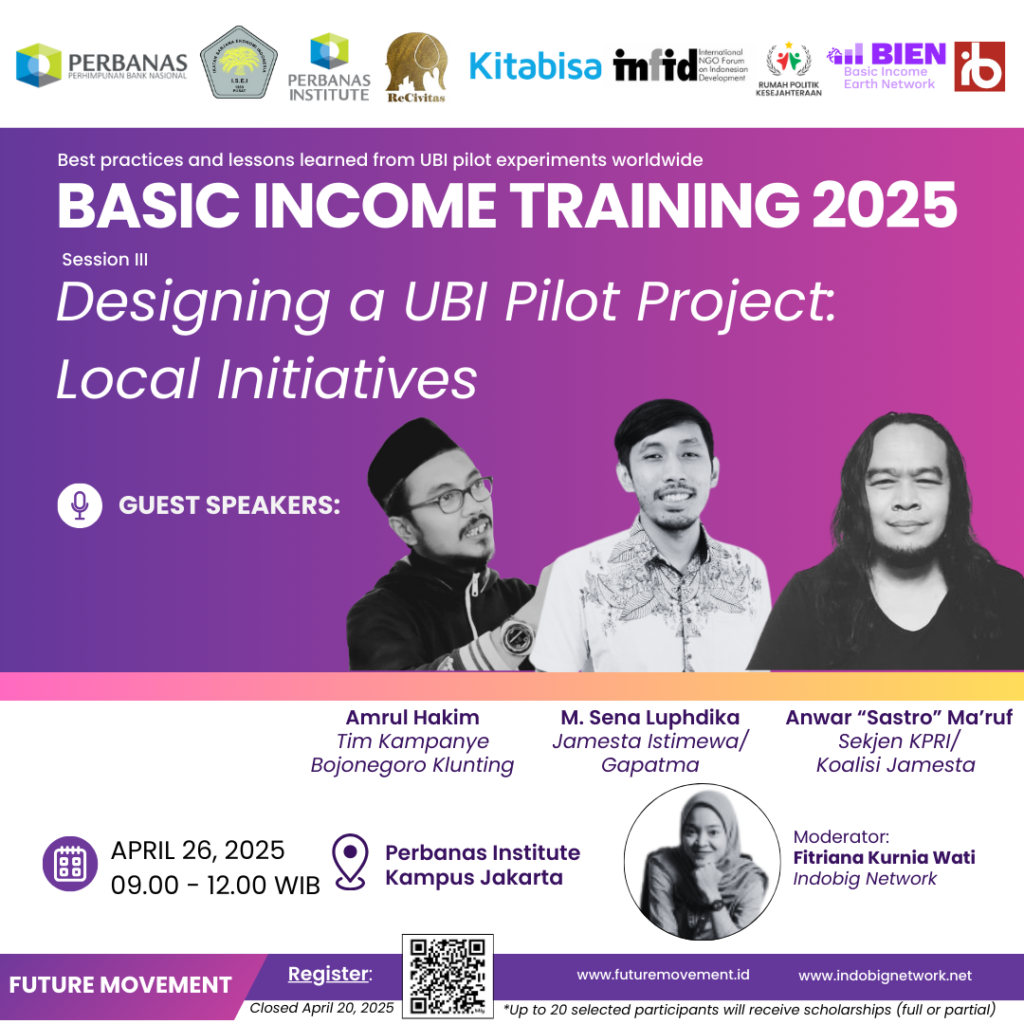
Session IV
